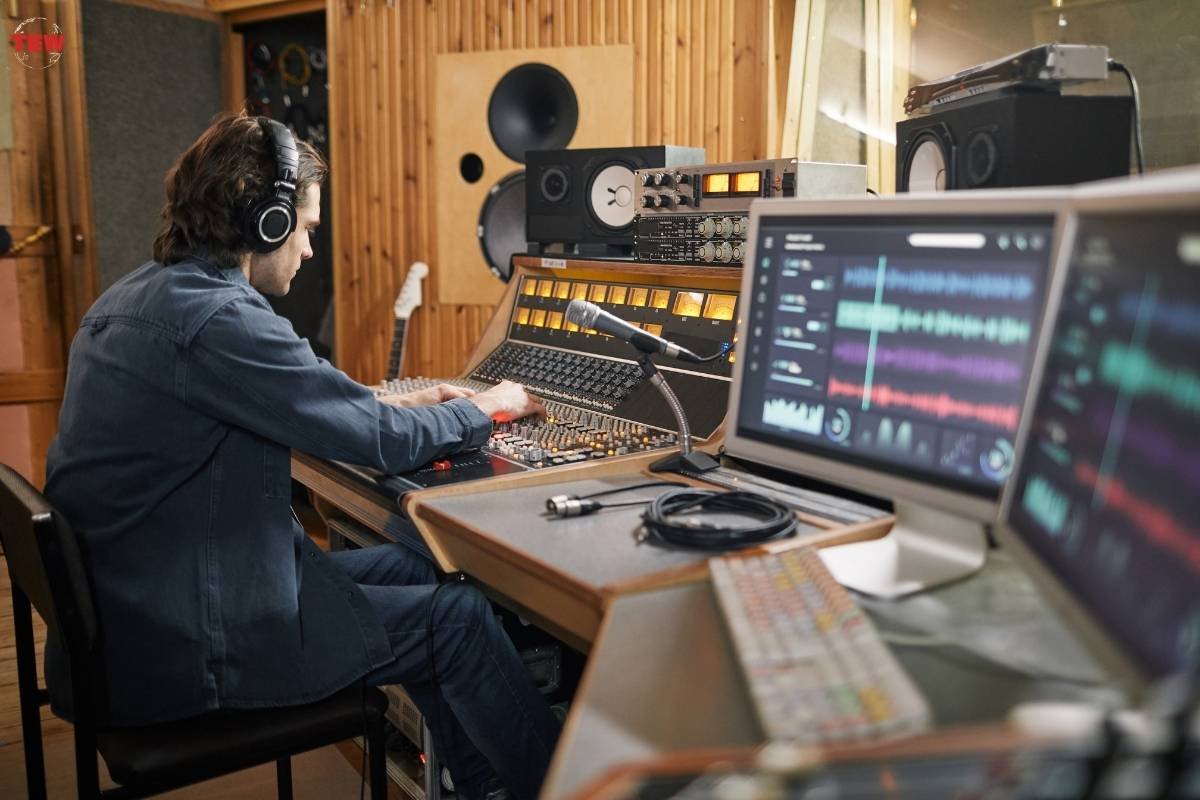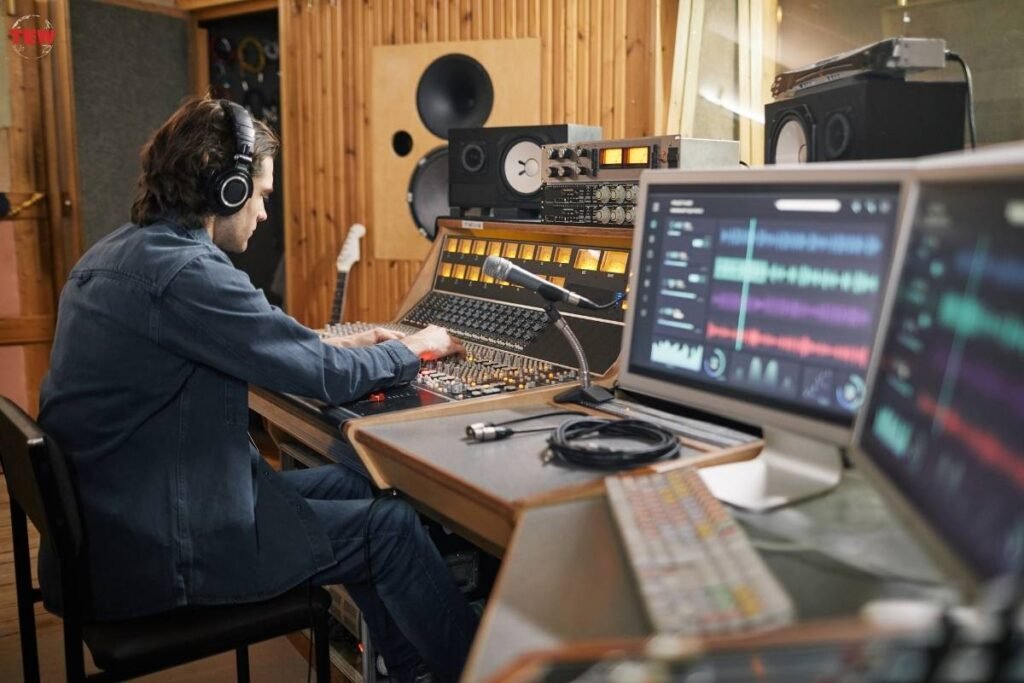Technology is present across all business and industry areas, so it should come as no surprise that it has an impact on music as well. In fact, the ways in which technology has impacted music industry are plain to see nowadays as well, with fans nowadays able to follow their favorite bands and artists through the means of both audio and video streaming services, which give you the possibility to listen to the albums you like on repeat and attend concerts on the other side of the planet without leaving the comfort of your own bedroom. Technology has made the creation and production of new tracks faster and more accessible, and there are artists who produce and launch tracks directly from home-based studios.
Advancements in sound engineering, musical instruments, devices, and recording equipment have also led to the creation of new sounds and the possibility of delivering them across several different mediums. In the span of less than a hundred years, audio formats moved from the vinyl in the late 40s to the cassette tape in the early 60s, the CD in the early 80s to the file formats of the 90s and aughts and finally, the streaming services of today, where you can listen to millions of songs from the very popular ones that everyone knows to the very obscure which are familiar to only a tiny community of listeners.
And yet, the developments in the world of music are far from over, as the age of digital technology appears to still be in its incipient stages. What can musicians and fans expect from the future?

AI in music industry
Artificial intelligence is widely regarded as one of the most disruptive technologies in the world due to its ability to change all sectors, from business to agriculture, medicine, and education. Its potential is so vast that it can replace previous procedures completely, uprooting the old systems to replace them with something new. In the music industry, artists have already condemned the use of the technology with the aim of creating new songs that imitate the voice of the musicians themselves. Naturally, the people who put a lot of work and effort into new tracks are unlikely to take kindly to this use of the technology as it is essentially an infringement upon creativity and copyright.
However, if used ethically, artificial intelligence can complete recordings more efficiently and at a faster rate, correct pitch errors, and generate new compositions that can be integrated into the artists’ work, such as harmonies and melodies. The important thing is for musicians to have full control over their work and be able to consent to how their image or work is used.

Efficiency in music industry
The increased efficiency technology can bring to the music industry is demonstrated by the wide range of plugins, tools, and features currently available to those who work in the industry, as well as the more extensive integration of music across different mediums. For instance, it is now much easier to choose from a large selection of songs to be used as part of presentations, podcasts, videos, and even for when phones are on hold with the help of Melody Loops so that all your projects will benefit from the aid of an appropriate soundtrack.
You can choose among several different moods ranging from calm and relaxing to intense and energetic, as well as various styles like smooth jazz, acoustic, electronic, country, or classical. There is more of an incentive to bring new and more attractive products and features for customers, hence why development remains constant in this area. The aim is to create the perfect mixture of simplicity and accessibility and permit easier access to music for both casual and hardcore listeners, as well as for those who want to use it in order to boost their own projects.

Sound diversity
Access to technology also creates a more vibrant and diverse music scene, meaning that standard sounds are evolving and changing all the time, even in mainstream, popular music. There’s also simply a lot more music available, as it doesn’t take a lot of resources to create new songs. Exploring different genres and integrating people from very different backgrounds in the musical sphere means that listeners have a higher chance of finding tunes and artists that resonate with them.
As technology continues to evolve, production work also becomes more cutting-edge so that songs can be more sophisticated and display high-quality music industry features. There are so many different software and synthesizer options out there that you must do your research beforehand to make sure you get the best devices for the type of music you want to create.
Blockchain
The blockchain is a decentralized network well-known for its associations with the world of cryptocurrencies. However, analysts and researchers studying its development have discussed the fact that it can potentially change several sectors, branches, and departments across virtually all institutions and business environments. Tokens can allow communities to reward smaller, independent creators fairly through the means of decentralized applications and finances. Since the coins tend to appreciate over time, it also means higher earnings for the artists.
Some fans also believe that the artists don’t receive enough of the royalties they are due from the streaming of their music and that blockchain integration could create a fairer market that rewards them equally. Yet, many have addressed the possible downsides of this technology, including its potential risks, such as instability and the potential to lose more money than you earn. Since it is still in its early stages, it will still take a while to use this tech on a broader scale.
As tech continues to develop and evolve, the music industry has to follow along as well in order to keep up with the times. Artists notice the positive sides of this growth, as well as the difficulties that come with technological solutions and features that anyone can use. Hopefully, developments in the ecosystem will continue to work to the benefit of the music industry artists and their fans rather than to their detriment to create a truly spectacular music environment.




